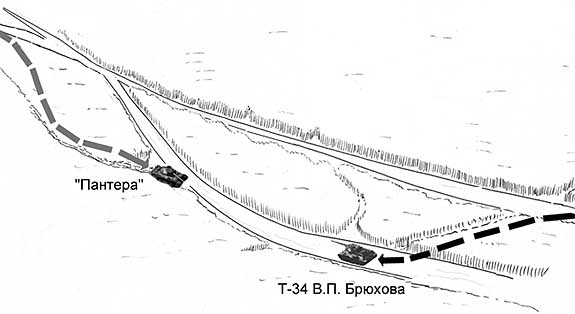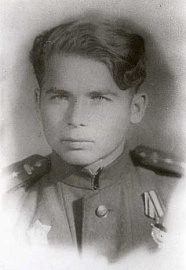Of course the experienced tankers lived on longer. I can give you a simple example. A company of ten tanks would arrive for reinforcement. We had four tank commanders with combat experience in reserve. Out of ten young tank commanders, who had arrived along with their tanks, four the least capable ones would be released from their positions and assigned either back to the tank factory to pick up tanks or for the battalion reserve. They were not particularly opposed to that – nobody was very eager to go in for a fight. In their stead, four tank commanders from the reserves would be assigned. Driver-mechanics and other crew members could be changed out in the same manner. So, after one or two weeks in battles, out of the six young tank commanders barely one or two survived, while out of the old tankers only one would be killed. The experienced soldiers were killed by one third less than the inexperienced ones. Experience is a great thing! Being in action two or three times was as good as finishing training school. Even one battle would teach you more than training school. If you survived a battle, it meant that you could concentrate all your will, knowledge, and observation power – all your capabilities. Well, if you were a capable one you stood higher chances to survive

|
|
Battle in Romania (drawn by S.Kuleshov) |
During the fifteen days of the Jassy-Kishinev offensive in my T-34-85 tank I personally knocked down nine enemy tanks. One battle I remembered particularly well. Having passed Husi we were heading toward Leova to link up with the 3rd Ukrainian Front. We were advancing in a field of corn as high as a tank, we could see nothing. But there were cuttings and roads, as in a forest. At the end of a cutting I had caught a glimpse of a German tank advancing towards us, which later turned out to have been a ‘Panther’ tank. I commanded: "Stop. Gun sight – 30’ to the right, tank at range of 400 m." Judging by direction of the panther’s advance we were supposed to meet at the next cutting. Our gunner pointed the gun to the right and we advanced towards the next cutting. The German had detected me also and seeing the direction of our advance proceeded with lurking me out of the corn. I looked through panorama sight where it was supposed to emerge. Right-on, it appeared at sector 3/4! At that moment a shot had to be fired. If you allowed the German to fire first and he missed you had to start off quickly, otherwise his next shot surely would be yours. Such tough guys were the Germans. I cried out to the gunner: "The tank is yonder!" But he didn’t see it. I saw half hull of the tank already out. We couldn’t wait any longer. Seconds lapsed. Then I seized the gunner by the scruff of his neck – for he was sitting next to me – and pulled him down to the rounds rack. I sat at the gun sight, trained the gun on the target and fired at the tank’s side. The enemy tank burst into flames, but nobody bailed out. And when it happened, my reputation as a commander soared to unreachable heights, because but for me the enemy tank would have fired at us first and we would have all been dead. The gunner Nikolai Blinov was humiliated, so ashamed he was.
Want to read full version? Join our support team!
| Interview and literary work by: | A. Drabkin |
| Translated by: | N. Kulinich |
| Translation review by: | Charles G. Powers |


